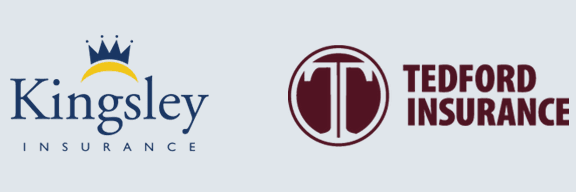Insurance 101: Understanding Different Types of Policies
KI
Introduction to Insurance Policies
Insurance can be a complex topic, but understanding the basics can help you make informed decisions about your coverage needs. There are various types of insurance policies designed to protect different aspects of your life, from health to property. In this guide, we'll break down the most common types of insurance policies and what they cover.
Whether you're new to the world of insurance or looking to expand your knowledge, this article will provide you with a solid foundation. Let's dive into the different types of insurance policies and their benefits.

Health Insurance
Health insurance is one of the most crucial types of insurance you can have. It covers medical expenses such as doctor visits, hospital stays, surgeries, and prescription medications. There are different plans available, including:
- HMO (Health Maintenance Organization): Requires you to use a network of doctors and hospitals.
- PPO (Preferred Provider Organization): Offers more flexibility in choosing healthcare providers.
- EPO (Exclusive Provider Organization): Combines features of HMO and PPO plans.
Why Health Insurance is Essential
Having health insurance can save you from financial ruin in case of a medical emergency. It also provides access to preventive care, which can help you maintain your health and catch potential issues early. In many countries, health insurance is mandatory, so it's important to understand your options.
Life Insurance
Life insurance provides financial security for your loved ones in the event of your death. There are two main types of life insurance:
- Term Life Insurance: Provides coverage for a specific period, such as 10, 20, or 30 years.
- Whole Life Insurance: Offers lifelong coverage and includes a savings component that can grow over time.

Choosing the Right Life Insurance Policy
When selecting a life insurance policy, consider factors such as your age, health, and financial situation. Term life insurance is generally more affordable, while whole life insurance offers additional benefits like cash value accumulation. It's essential to evaluate your needs and consult with an insurance advisor to make the best choice.
Home Insurance
Home insurance, also known as homeowners insurance, protects your property and belongings from damage or loss. It typically covers:
- Structural damage to your home
- Personal belongings inside the home
- Liability for accidents that occur on your property
Home insurance is particularly important if you own a home, as it provides financial protection against natural disasters, theft, and other unforeseen events.

Understanding Home Insurance Coverage
Home insurance policies can vary significantly, so it's crucial to read the fine print and understand what is covered. Some policies may also offer additional coverage options, such as flood or earthquake insurance, which can be vital depending on your location.
Auto Insurance
Auto insurance is mandatory in most places and covers damages resulting from car accidents. The main types of auto insurance include:
- Liability Coverage: Pays for damages and injuries you cause to others.
- Collision Coverage: Covers damages to your vehicle resulting from a collision.
- Comprehensive Coverage: Protects against non-collision-related damages, such as theft or natural disasters.
Why You Need Auto Insurance
Auto insurance not only protects you financially but also ensures that you comply with legal requirements. Without it, you could face hefty fines and legal consequences. Additionally, having adequate coverage can provide peace of mind while driving.
In conclusion, understanding the different types of insurance policies can help you make informed decisions about your coverage needs. Whether it's health, life, home, or auto insurance, each type serves a specific purpose and offers unique benefits. By evaluating your circumstances and consulting with insurance professionals, you can find the right policies to protect yourself and your loved ones.
